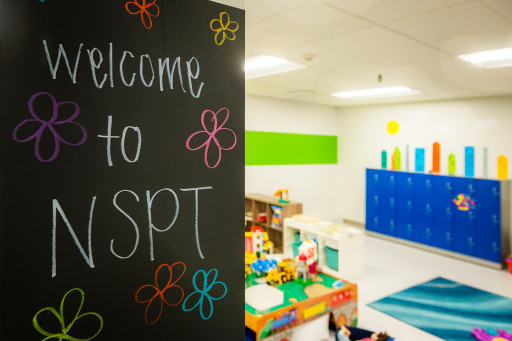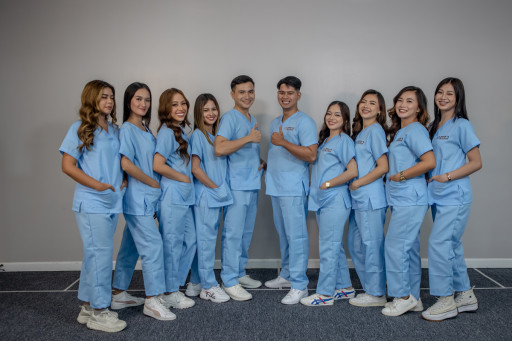GLENOLDEN, Pa., May 9, 2023 (Newswire.com) - The letter from the sperm bank landed like a bomb in the midst of the families who had conceived children with Donor X: He had tested positive for one of the genes that cause Charcot-Marie-Tooth disease (CMT), a rare neuromuscular disease that affects one in 2,500 people.
CMT is a progressive disease of the peripheral nerves that causes people to lose the normal use of their feet, legs, arms and hands. As the nerves die, the muscles around them follow suit. Symptoms include foot deformity (very high arched feet) and foot drop (inability to hold foot horizontal); a slapping gait (feet slap on the floor when walking); loss of muscle in the lower legs, leading to skinny calves; numbness in the feet; and difficulty with balance. In rare cases, hearing, vision and breathing may also be affected.
According to the February 28 letter from the sperm bank, Donor X was asked to submit to genetic testing after one of his offspring tested positive for a likely pathogenic variant in the DMN2 gene. While he had no CMT symptoms and no family history of the disease—he agreed. The sperm bank also recommended that the biological mother be tested. Only the donor's results were positive.
Based on this result, the letter continued, all offspring of Donor X have a 50 percent chance of inheriting his gene variant and are at risk for symptoms if the variant is determined to cause disease.
Single mother Erica, 47, got one of those letters. Two of her four children—Frankie, 11 and George, 7—were conceived using Donor X's sperm. Both have a rare form of CMT—Dominant Intermediate B, a group of CMT subtypes in which nerve conduction does not comport with either axonal CMT or demyelinating CMT. Instead, nerve conduction study results are somewhere in between, or intermediate, a term that refers only to nerve conduction and not to disease severity or progression.
Donor X was an open donor, meaning that his biological children are allowed to contact him when they reach the age of 18. This also meant that there was a portal for parents who had children with the same open donor. When one family contacted Erica through the portal to offer her a vial of Donor X's sperm they no longer needed, she didn't hesitate. The temptation of having the brothers be full siblings was too strong and at the time there was no reason to say no.
Erica knows of 10 kids from seven families who share Donor X's DNA. Many of them have met at Erica's house, spending weeks together and visiting Disney World daily. All of the kids are very much alike, Erica says, sharing personalities, looks and mannerisms. They call each other "diblings," a mashup of donor siblings.
Frankie first exhibited symptoms at the age of 2. Over the years, his symptoms grew worse, as they do with a progressive disease. Frankie was formally diagnosed with CMT in December 2022, George in February, less than two weeks before the sperm bank letter arrived.
Today, both brothers are legally deaf and live with apraxia, severe nerve pain and sensory issues. Frankie also has severe breathing issues. While Frankie wears a hearing aid, George communicates solely by signing and the whole family knows American Sign Language. Finding the silver lining in this particular cloud, Erica says that "Frankie teaches us what is coming for George." In the last 18 months, Frankie has lost all muscle tone and started "toe-walking," a typical CMT symptom.
What's extraordinary about the boys is their ability to participate in everyday life. As Erica put it, "Their lives are greatly impacted but not destroyed." They are in a special little league, swim like fishes, golf and play bocce ball. George happily spends hours at a time in the sandbox. But any of those activities can set off paroxysms of pain so bad that Frankie is afraid he's dying. Both take gabapentin with mixed results and Erica is concerned that Frankie's dose keeps getting upped. "You know where that leads," she said.
Erica has two other sons as well: William, 27, an automotive journalist, lives at home with the family, providing crucial support and care. She recently adopted baby Joey, now 8 months, who was born with fetal alcohol syndrome. With the love and care this remarkable family provides, he is improving—and he keeps Frankie happy and distracted. "I am forever grateful for Joey allowing us to show him what love and family truly mean," she said.
While Erica clearly adores all her children, she said she wouldn't have used Donor X's sperm for George if she had been informed about the CMT. "I wouldn't have purposefully had a child who had to go through so much pain."
Erica is a fighter—and a fierce advocate for her kids. Her advocacy extends to everyone with CMT and her hope is that by being open about her family's story, "[The] specialists and the donors feel compelled to help find treatment for the painful and debilitating symptoms that CMT causes."
In a happy footnote to the story, Frankie was recently accepted to Camp Footprint, the country's only sleepaway camp for kids who have CMT. Fully funded by the Charcot-Marie-Tooth Association (CMTA), Camp Footprint (motto "One Step at a Time") gives kids with CMT a chance to participate in all the regular camp activities like swimming, horseback riding, sports, campfires and music. But they'll also get the experience of connecting to strangers who quickly become friends because they share the same physical and emotional challenges. Campers get the chance to feel understood, to be normal, and to blend in instead of standing out.
The CMTA is the leading patient advocacy organization driving CMT research. Its mission is to develop treatments and a cure for the 3 million people worldwide who live with the disease, while improving the quality of life for patients and their families. The CMTA has invested $23.5 million in the search for a cure and its Strategy to Accelerate Research (STAR) brings world-renowned CMT researchers together with pharmaceutical and biotechnology partners and patients to accelerate scientific breakthroughs. The CMTA also offers community services, including 70 local branches, educational materials and patient conferences. To learn more about the CMTA, please visit www.cmtausa.org.
Contact Information:Sarah Kaider
Digital Marketing Manager, Charcot-Marie-Tooth Association
[email protected]
Marcia Semmes
Media Contact, Charcot-Marie-Tooth Association
[email protected]
Original Source: Charcot-Marie-Tooth Association: Sperm Donor With CMT Gene Passes It on to Multiple Families



